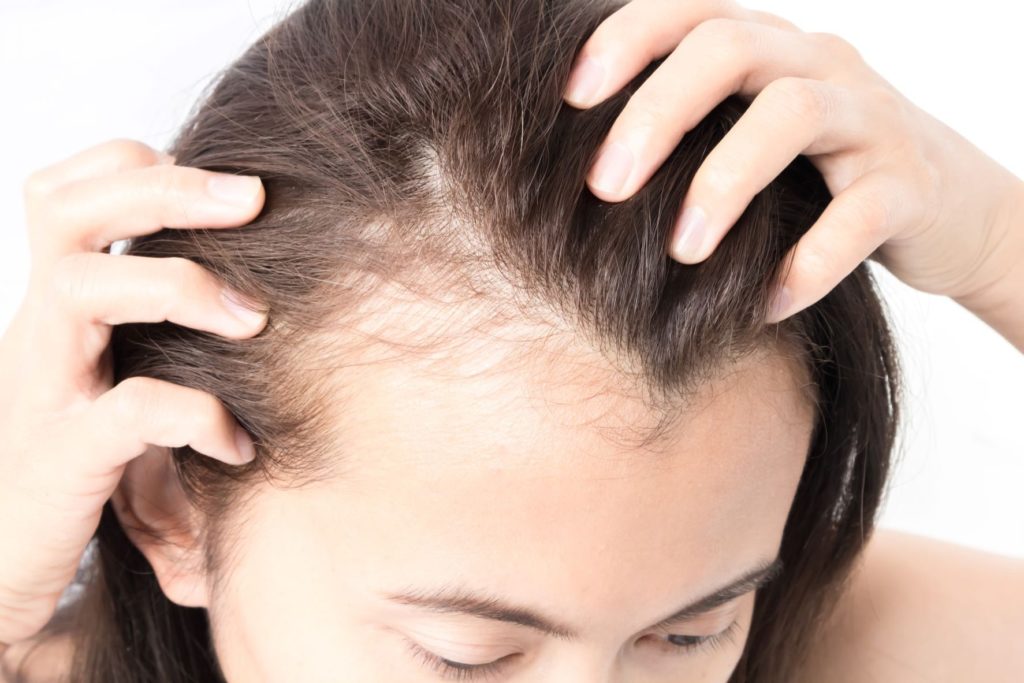Can Drug Abuse Cause Hair Loss?
Drugs and anxiety can cause hair loss in many ways. Drug abuse damages the cells that make up hair follicles, leading to hair loss. Additionally, drug abuse can also lead to other health problems that may contribute to hair loss. There are many resources available to help someone recover from drug abuse, and hair loss is just one of the many possible consequences.
Table of Contents
ToggleHow Does Substance Abuse Affect Hair Growth?
Substance abuse can lead to a number of different hair problems. For example, chronic use of methamphetamine can cause hair to become brittle and break off. This can lead to bald spots or thinning hair. In addition, substance abuse can also cause scalp problems, such as dandruff, oily scalp, and fungal infections. These scalp problems can also lead to hair loss. In general, substance abuse can cause a number of different problems that can affect the health of your hair.
What Substances Affect Hair Health?
Substances of abuse can have a number of negative effects on hair health. For example, cocaine use can lead to scalp inflammation and hair loss. Alcohol abuse can cause inflammation and damage to the hair follicles, leading to thinning hair or baldness. Methamphetamine use can also lead to intense itching and scratching of the scalp, which can damage the hair follicles and lead to hair loss.
Does Alcohol Cause Hair Loss?
When it comes to alcohol and hair health, there is no one-size-fits-all answer. While moderate alcohol consumption is generally not harmful to hair, overindulging can lead to dehydration and other issues that can put stress on the follicles and cause hair loss. In severe cases, excessive drinking can even lead to permanent hair loss.
So, what is the best way to enjoy alcohol without putting your hair health at risk? The key is moderation. If you do choose to drink, be sure to stay hydrated by drinking plenty of water in between alcoholic beverages. This will help to keep your scalp and follicles moist and prevent them from becoming dried out and damaged. Also, be sure to avoid processed, sugary drinks like cocktails as these can further contribute to hair loss.
Does Meth Cause Hair Loss?
Methamphetamine use can lead to a number of hair health problems. Firstly, meth can cause the body to produce excess sebum, which can lead to an oily scalp and dandruff. In addition, meth can also cause the body to lose hair follicles, resulting in thinning hair or baldness. Finally, meth use can also damage the hair shaft, making it brittle and more susceptible to breakage. All of these problems can lead to significant hair loss and a decrease in the overall health of your hair.
What Happens to a Person’s Body When They Abuse Substances?
 There are a number of chemical changes that occur in the body when someone is abusing substances. These changes can lead to a number of different health problems, and can even be deadly in some cases.
There are a number of chemical changes that occur in the body when someone is abusing substances. These changes can lead to a number of different health problems, and can even be deadly in some cases.
One of the most notable changes that occur is an increase in the levels of dopamine in the brain. Dopamine is a neurotransmitter that is responsible for feelings of pleasure and reward. When someone abuses substances, they are artificially increasing the levels of dopamine in their brain, which can lead to a feeling of euphoria. However, this increase in dopamine can also lead to addiction, as the person will begin to crave the substance in order to feel that same sense of pleasure.
In addition to the changes in dopamine levels, substance abuse can also cause changes in the levels of other neurotransmitters, including serotonin and GABA. These changes can impact a person’s mood and can lead to problems with anxiety, depression, and even aggression. Additionally, substance abuse can also lead to changes in the structure and function of the brain, which can impact a person’s cognitive abilities and increase their risk of developing dementia.
Treatment for substance abuse typically includes some combination of detoxification, therapy, and medication. Detoxification is often the first step in treatment, as it helps to rid the body of the substance. Therapy can help to address the underlying issues that led to the abuse, and medication can help to manage any resulting mental health disorders. Treatment is often ongoing and may need to be adjusted as a person’s needs change.
The Stress of Drug Addiction and Hair Loss
Drug abuse not only causes stress but can also lead to a number of other mental and physical health problems. Some of the most common problems that can be caused by drug abuse include anxiety, depression, and addiction. These problems can oftentimes be very difficult to overcome and may even require professional help in order to be resolved. If you or someone you know is struggling with drug abuse, it is important to seek out help as soon as possible in order to avoid any further damage.
Does the Stress of Drug Addiction Affect Hair Loss?
Stress is a common trigger for hair loss, and drug addiction can be a very stressful experience. The constant worry and anxiety associated with addiction can lead to hair loss, as well as the physical stress of the drug use itself. Drug addiction can also cause nutritional deficiencies that can contribute to hair loss.
How Can Stress Affect Hair Loss?
Hair loss can be caused by a variety of factors, including stress. Stress can cause the body to go into survival mode and divert all its energy to keep the vital organs functioning. This can result in a decrease in blood flow to the scalp, which can lead to hair loss. In addition, stress can cause the body to produce more of the hormone cortisol, which can also lead to hair loss. If you are experiencing hair loss due to stress, there are a few things you can do to help lessen the effects.
First, try to reduce the amount of stress in your life by taking some time for yourself each day and doing things that make you happy. Secondly, try to eat a healthy diet and get plenty of exercise, as both of these things can help to reduce stress levels. Finally, if you are still experiencing hair loss after taking these steps, you may want to consult a doctor or dermatologist to see if there is a more serious underlying cause.
How Can Someone with Substance Abuse Prevent Hair Loss?
If you are experiencing hair loss as a result of substance abuse, it is important to seek treatment as soon as possible. There are a number of treatments available that can help to reverse the effects of substance abuse on the hair follicles and improve hair growth. In addition, there are a number of ways to prevent hair loss from occurring in the first place, such as avoiding substance abuse and maintaining a healthy diet and lifestyle.
Ways to Prevent Substance Use Disorder
Substance use disorder can have a lasting and detrimental effect on an individual’s life. It is important to be aware of the signs and symptoms of substance use disorder and to get help if you or someone you know is struggling with addiction. There are many ways to prevent substance use disorder, including the following:
- Educating yourself and others about the risks of substance abuse
- Avoiding situations where drugs and alcohol are present
- Staying in control of your own drinking or drug use
- Recognizing early signs of addiction in yourself or others
- Seeking professional help if you or someone you know is struggling with addiction
Ways to Treat Substance Use Disorder
 There are many different types of treatment for substance use disorder, but the most important thing is to find a program that is right for you. There is no one-size-fits-all approach to treatment, and what works for one person may not work for another. It is important to find a program that meets your specific needs and that you feel comfortable with.
There are many different types of treatment for substance use disorder, but the most important thing is to find a program that is right for you. There is no one-size-fits-all approach to treatment, and what works for one person may not work for another. It is important to find a program that meets your specific needs and that you feel comfortable with.
One of the most important aspects of treatment is detoxification or detox. This is the process of allowing your body to rid itself of the toxins from drugs or alcohol. Detox can be done on an inpatient or outpatient basis, depending on your situation. Inpatient detox is usually recommended for people who are struggling with addiction and who have a history of relapsing. Outpatient detox is often recommended for people who are not struggling with addiction and who do not have a history of relapsing.
Other methods of care such as therapy are also utilized in more traditional forms of care like inpatient or outpatient treatment. Therapy will help you understand your addiction and why you turned to drugs or alcohol in the first place. Therapy will also help you learn how to cope with triggers and cravings. You will also learn about relapse prevention.
After therapy, you will be able to transition to a sober living environment. Sober living environments are safe and supportive places where you can live while you continue your recovery journey. In a sober living environment, you will be able to live independently while still having support from others in recovery.
First City Can Help You Overcome Addiction Today
At First City Recovery Center, our utmost concern is that those who walk through our doors find the individualized care they require. If you or a loved one are interested in finding out more, you can contact us here.

MD, Psychiatrist
Dr. Vahid Osman, MD is a psychiatry specialist in Indianapolis, IN.
Dr. Osman completed a residency at Austin State Hospital. He has over 32 years of experience in Psychiatry & Behavioral Health. He is board certified by the American Board of Psychiatry and Neurology.




